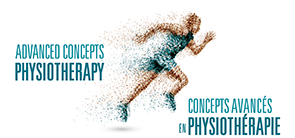| |
|
|
Temperomandibular Joint (TMJ) Disorder/Dysfunction
The temperomandibular joint is the hinge that connects your jaw to the temporal bones on your skull which lie in front of each ear. Your TMJ lets your mouth move side to side, up and down, and open and closed. That being said, it is a huge player in chewing, speaking, and yawning. Problems or injuries to this joint are referred to as TMJ disorders, and can be linked to one or a combination of the following causes:
• grinding or clenching the teeth
• previous surgeries
• stress
• muscle imbalances
• distinct injury (i.e. heavy blow or whiplash)
• arthritis in the temperomandibular joint
SYMPTOMS
• pain or tenderness in the face, jaw, neck, shoulders, or around ear when chewing,
speaking or opening mouth wide
• difficulty opening the mouth fully (ie. to yawn)
• jaw getting stuck or locked open or closed
• tension headaches or migraines
• trouble chewing, uncomfortable bite as if teeth are not fitting together correctly
• clicking, popping or grating sounds or sensations when moving or opening the jaw
(may or may not be painful)
• jaw slipping or sliding out of place
• tired feeling in the face or swelling on the side of the face
• noticeable tension in the face/jaw muscles
How can physiotherapy help you?
Based on the assessment the physiotherapist performs, they will be able to provide you with the appropriate stretching, strengthening, postural and chewing correction exercises. There are often very helpful techniques to alleviate pain and muscle tightness that the physiotherapist can show you how to do yourself. Acupuncture and electroacupuncture is also a very beneficial treatment option for TMJ disorders. |
| |
|










